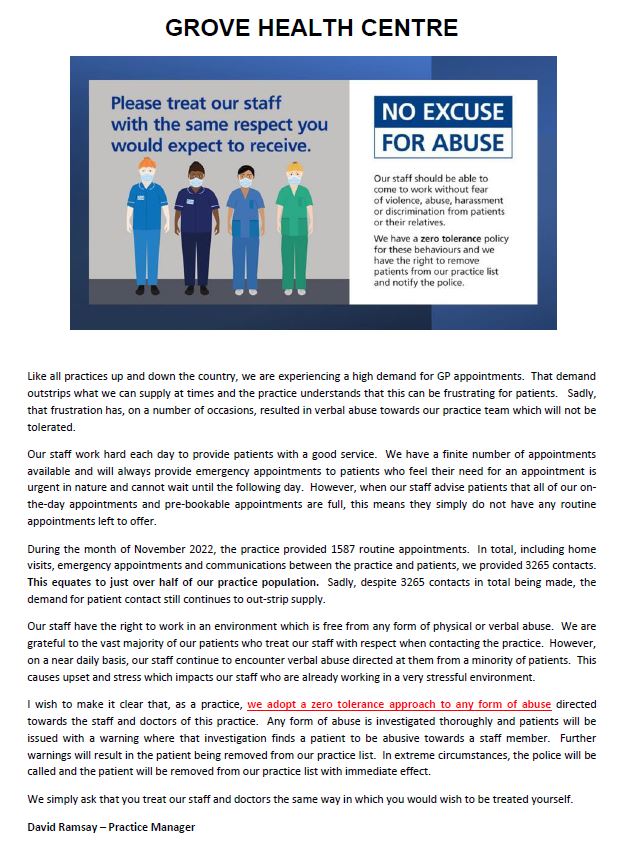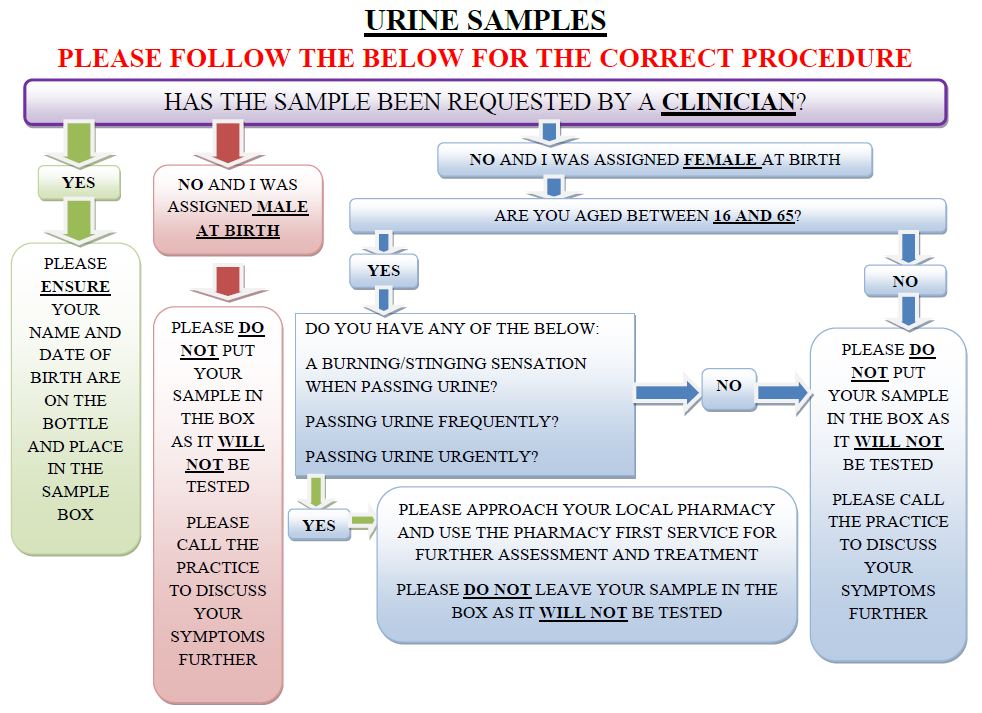.jpg)
Diazepam Prescribing for Fear of Flying & Medical Procedures Policy
Grove Health Centre does NOT prescribe Diazepam outside of its terms of license. This includes as a sedative for fear of flying or medical procedures under specialist care. This policy decision has been made by the GP partners and is adhered to by all prescribers working across the practice. The reasons for this are listed below:
Diazepam is a sedative, which means it makes you more sleepy and more relaxed. If there is an emergency during a flight or procedure, this may impair your ability to concentrate, follow vital instructions and react to the situation. This could have serious safety consequences for you and those around you.
Sedative drugs can make you fall asleep, however when you do sleep it is an unnatural form of sleep called non-REM sleep. This means your body does not move around as much as during natural sleep and can increase your risk of developing a blood clot in the leg (DVT) or lung (pulmonary embolism). Blood clots are dangerous, and in some circumstances can be fatal. This risk is even higher for those on flights over 4 hours.
While most people find diazepam sedating, a small number of people have a differing reaction and can become agitated and aggressive. Diazepam can also cause disinhibition, leading you to behave in a way that you would not normally. These effects can impact on your safety and in some instances can get you in trouble with the law.
According to prescribing guidelines for doctors (BNF) benzodiazepines (including Diazepam) are contraindicated (not allowed) in patients with phobia. Your doctor would have to take a significant legal risk to prescribe against these guidelines, and risk losing their job. They are only licensed short term for a crisis in generalised anxiety. If this is the case, you should be getting proper support and care for your mental health.
Diazepam and other similar drugs are illegal in several countries. They may be confiscated, or worse you may find yourself in trouble with the police.
Diazepam stays in your system for quite a while after taking it. If your job requires random drug testing, you may fail this after taking diazepam. We appreciate that anxiety can be very debilitating, and we urge patients to see us for support with their mental health.
We appreciate a fear of flying is very real and very frightening. A better approach to tackle this is to take a fear of flying course run by the airlines listed below.
Easy Jet www.fearlessflyer.easyjet.com
British Airways www.flyingwithconfidence.com
Virgin www.flyingwithoutfear.co.uk
The GP Partners of Grove Health Centre have made the decision not to prescribe Diazepam for MRI scans or other medical procedures, including dental procedures.
Some people find scans daunting and in the past, you may have received a prescription from your GP for a sedative such as Diazepam to help with claustrophobia or anxiety during such procedures. This will no longer be possible for the reasons detailed below:-
For the vast majority of cases we, as General Practitioners, do not request MRI scans. These are almost always requested by hospital clinicians. If you feel too anxious to undergo an MRI scan, please speak to the requesting team to discuss your options as this is not the responsibility of the practice.
The Royal College of Radiologists have strict guidance on the safe sedation of patients during investigations such as CT and MRI scans. It would be unsafe for us as GPs to prescribe a sedative that we unable to monitor. If you were to become unwell during a scan after taking a sedative that the Radiology team did not know about, this could be very dangerous. Again, if you have concerns about anxiety of claustrophobia with regards to a scan, please contact the department who requested the scan or the Radiology department. It is not the responsibility of the GPs and we will not prescribe for these reasons.
Finally, for procedures such as cataract operations or dental procedures it is the responsibility of the Surgeon or Dentist to prescribe any sedation they feel you need. Requests to the practice for such reasons will be declined.
LAST UPDATED: 29 MAR 2024
Protected Learning Time (PLT)
To allow all practice staff dedicated protected learning time, the practice will be closed on the following afternoons from 1pm onwards:
WEDNESDAY 28th FEBRUARY 2024
WEDNESDAY 5th JUNE 2024
WEDNESDAY 4th SEPTEMBER 2024
WEDNESDAY 27th NOVEMBER 2024
LAST UPDATED: 07 FEB 2024
NO EXCUSE FOR ABUSE

Urine samples
Our procedures regarding urine samples being handed into the practice have now changed. Urine samples should only be handed into the practice for testing if they have been requested by a clinician. Any samples handed into the practice which have not been requested, will not be tested.
The flow chart below provides further information
